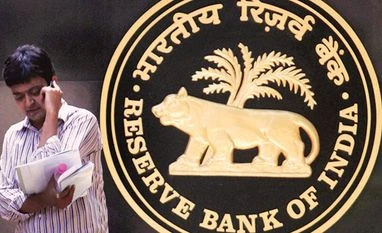The six-member Monetary Policy Committee (MPC) headed by RBI Governor Urjit Patel will meet on Tuesday and the day after for the Second Bi-monthly Monetary Policy Statement for 2017- 18, with experts saying that a status quo on rates is likely.
Finance Minister Arun Jaitley said inflation has been under control for long and is likely to remain so on the back of good monsoon and an unlikely spike in oil prices.
Also Read
The industry has been pitching for a rate cut to boost gross domestic product (GDP) growth which fell to 7.1 per cent in 2016-17, from 8 per cent in the previous financial year.
The Reserve Bank, however, may wait for the July 1 roll-out of GST and assess the impact of the new indirect tax regime on inflation before tinkering with the policy rates.
"I do not think RBI will cut repo rate in the upcoming policy. They will wait for CPI data before taking a call. The tone of the policy is likely to be dovish," Union Bank of India executive director Vinod Kathuria said.
The inflation data for July, to be released in August, will give an indication on the impact of Goods and Services Tax (GST) on prices.
Retail inflation, based on Consumer Price Index (CPI), dropped to a multi-year low at 2.99 per cent in April over last year, mainly due to lower cost of food items, including pulses and vegetables. CPI inflation was 5.47 per cent in April 2016.
At the same time, inflation based on the wholesale price index slipped to a four-month low of 3.85 per cent in April as both food articles and manufactured items showed cooling in prices.
"Given the inflation trajectory and as the liquidity is enough in the market, it is unlikely that there would be any rate cut this time. I think commentary of the policy will be benign," State Bank of India DMD and Chief Financial Officer Anshula Kant said.
As per official estimates, GST would bring down inflation by 2 per cent in the long run as the cascading effect of tax on tax would go.
On April 6, the RBI had left its benchmark lending rate unchanged at 6.25 per cent for the third monetary policy review in a row, citing upside risk to inflation.
)